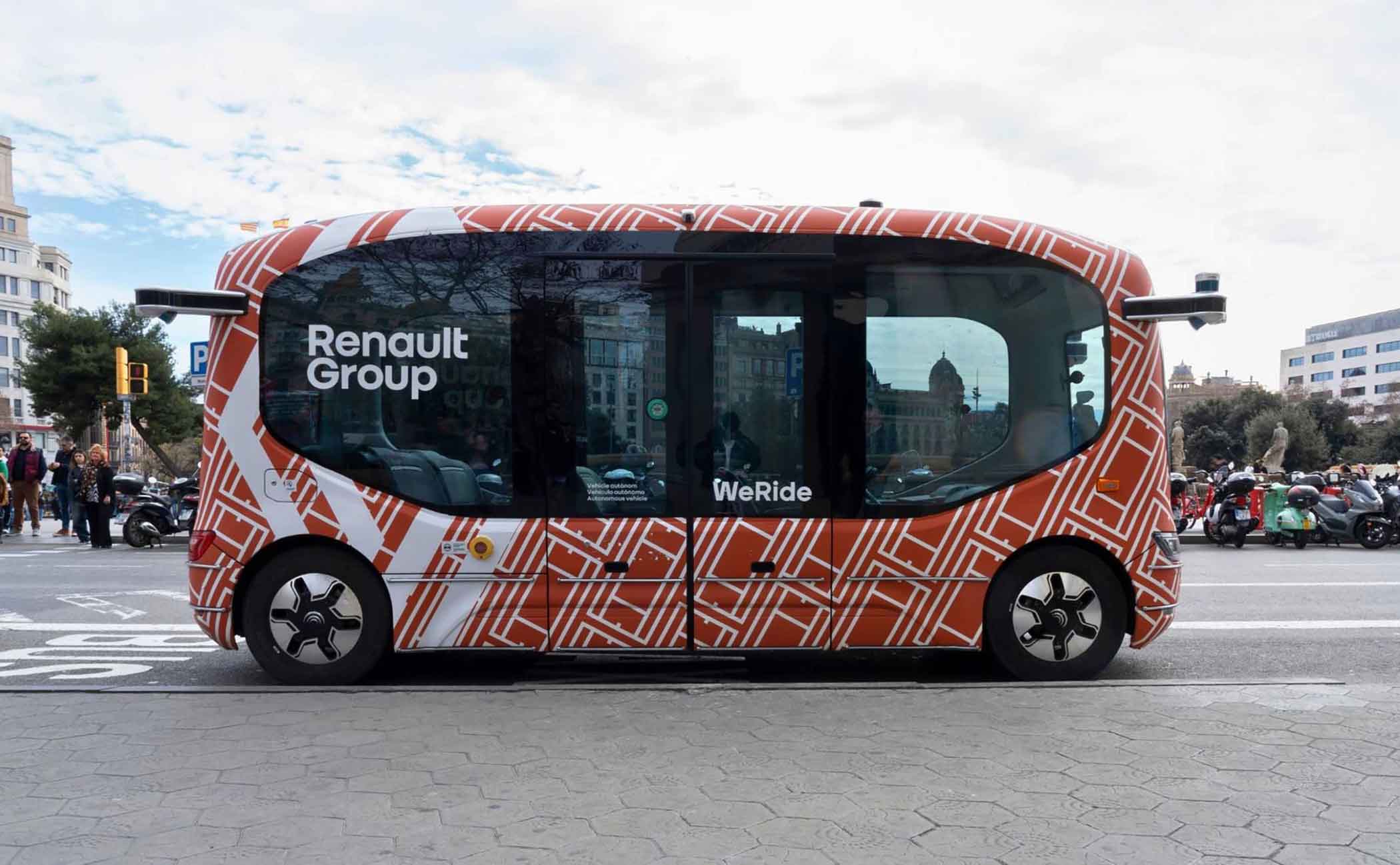Barcelona’s First Driverless Bus Hits the Roads
Barcelona is taking a major step toward the future of smart mobility with the introduction of Renault’s autonomous mini-bus. This cutting-edge self-driving vehicle has been operating a 2.2-km (1.3-mile) circular route in the city center, offering free rides to passengers throughout the test period.
The initiative marks a significant milestone in the evolution of public transportation, positioning Barcelona as a leader in integrating autonomous technology into urban transit systems.
Renault and WeRide Join Forces for Autonomous Mobility
Renault, a global leader in the automotive industry, has partnered with WeRide, a renowned autonomous vehicle technology company, to bring this self-driving bus to life. The project aims to redefine urban transportation by introducing a safe, efficient, and environmentally friendly alternative to traditional buses.
WeRide has been developing autonomous driving technology for years, and this collaboration with Renault allows them to test real-world scenarios in a bustling city like Barcelona.
How the Driverless Bus Works
The self-driving mini-bus operates using state-of-the-art AI technology, GPS mapping, and advanced sensors to navigate through city streets. Key features include:
- Autonomous Navigation: The bus is equipped with LiDAR sensors, cameras, and AI-powered algorithms that detect traffic, pedestrians, and obstacles.
- Fixed Circular Route: It follows a set 2.2-km path with four designated stops, ensuring smooth operations.
- Safety Mechanisms: Emergency brakes and real-time monitoring ensure passenger safety.
- Zero Emissions: The vehicle runs on electric power, making it an eco-friendly alternative to traditional buses.
Barcelona’s Smart City Vision
The introduction of the driverless bus aligns with Barcelona’s commitment to becoming a global smart city. The local government has been investing in innovative solutions that enhance urban mobility, reduce traffic congestion, and lower carbon emissions.
Barcelona has previously tested electric buses, smart traffic systems, and shared mobility solutions. The addition of an autonomous bus further solidifies its status as a pioneer in sustainable urban transport.
Ongoing Autonomous Vehicle Testing Across Europe
This is not Renault’s first autonomous vehicle test. The French automaker has been actively testing driverless solutions in multiple locations, including:
- Valence, France: A similar pilot program is running to assess the feasibility of autonomous public transport.
- Zurich Airport, Switzerland: Tests are being conducted to improve airport mobility and transportation logistics.
- French Open Venue: The prototype was initially unveiled at the prestigious tennis event, showcasing its potential for event-based transportation.
Public Reaction and Future Plans
Commuters in Barcelona have shown great interest in the driverless bus, with many praising the convenience and futuristic feel of the ride. However, some remain skeptical about the safety and reliability of autonomous vehicles.
Experts believe that extensive testing and gradual integration will help build public trust. If the pilot program proves successful, Barcelona could see a wider rollout of autonomous public transport in the coming years.
Challenges and Considerations
Despite its promising potential, the adoption of driverless buses comes with challenges:
- Regulatory Approvals: Governments need to update policies to accommodate autonomous vehicles.
- Technical Limitations: AI-driven buses must improve navigation in complex traffic scenarios.
- Public Acceptance: Some people are hesitant to trust driverless technology for safety reasons.
Final Thoughts: Is the Future Driverless?
The success of Renault’s self-driving bus in Barcelona could pave the way for widespread adoption of autonomous public transport in cities worldwide. As technology advances and cities embrace smart mobility solutions, the future of transportation could become fully automated, offering safer, greener, and more efficient travel options.
Barcelona’s trial of the driverless mini-bus is just the beginning. If the results are positive, we may soon see more self-driving buses operating in major cities across Europe and beyond.
Would you ride a driverless bus in your city? Let us know your thoughts in the comments!
YAllA TV – www.yallatv.ae





